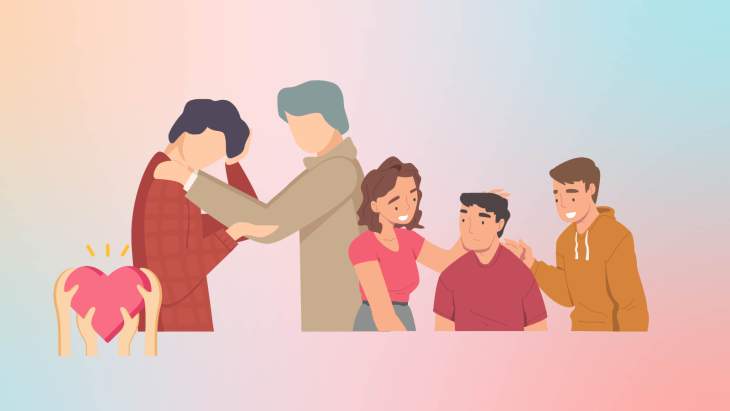Recent Posts
- Am I too sensitive to noise? It drives me crazy! The psychological effects of noise on mental health
- What are the signs that I am avoiding grief? How avoiding processing loss impacts mental health
- My son's disruptive behavior is affecting his life. How can I help him improve?
- I want to be ready for motherhood: Exploring pre- and postnatal mental health issues
- Effects of positivity on job search motivation. How do I stay confident when my job search gets tough?
Most Popular
I struggle with empathizing or sympathizing with others! Is this a sign of something wrong in my mental health?

Can we walk a mile in another person’s shoes before making a judgment? Can we truly say to someone, “I feel your pain”?
We often value desirable traits like kindness, compassion, charity, generosity, and forgiveness, but underneath these positive traits, one characteristic seems to form their foundation. That is empathy.
Experts on the subject of empathy even say that empathy is a “psychological glue” that links people to one another, and it is the most important trait that leads people to do other acts such as helping others, being kind, and volunteering.
Are we born with empathy, or do we develop it over time? Or is there a possibility that we lose empathy and regain it?
These are relevant questions we can ponder as we live in an increasingly divided world.
What is empathy?
Empathy is an experience in our emotions as we understand and respond to other people’s emotions and feelings and as a result, we mirror their emotions in our own body and we are motivated to do something to help them.
Research on empathy usually classifies empathy into two major parts: cognitive and affective.
Cognitive empathy- the brain part of empathy
- In order to develop cognitive empathy, we need to be able to understand the other person’s logic, way of thinking and the process that led them to their situation. This involves gathering information about the event that they are concerned about.
For example, it would be difficult for us to truly understand why someone is reacting a certain way to grief and loss if we do not know the typical grief cycle. It would be easier for us to make judgments about a person’s actions if we do not understand that anger and bargaining are expected responses when grieving.
Affective empathy- the heart part of empathy
- To develop empathy at the heart level, one must be prepared to deal with pain and other unpleasant feelings. Most people who need mental health support seek help from others whom they can share their pain and other heavy emotions with.
Studies show that when you enter the realm of affective empathy, you not only tend to mirror the person’s body language, gestures, facial expressions, but actually feel their emotions in your body. This is no easy work! But being prepared to feel pain or other heavy feelings, you can set some limitations to protect yourself from its negative effects.
What we need to know about healthy empathy
As you go through life, build relationships with people, you might notice that being empathetic can become draining. Have you ever been in a conversation with someone, and they share with you their deep pains and struggles? You were empathetic to the point that you felt their pain and you were able to understand the height and depth of their struggles. But as you get home, you still feel the heaviness from the conversation, and you feel as though all the energy has been drained out of you?
Practicing empathy without the skill of letting go of the emotions you “received” from the other person will cause negative effects on you mentally, and even physically.
Research on people with high empathy skills say that the stress your body undergoes while you feel other people’s pain is the same as if you were in the stressful situation yourself!
That is why professional mental health therapists recommend that empathetic people need to also learn how to set healthy boundaries so that they will not be harmed in the process of helping others.
So what do you do if you are still worried that you are not empathizing enough? An evaluation by a professional mental health practitioner may be able to help you understand possible underlying reasons. One of the most common things that seem to hinder a person’s empathy is their personal traumatic experiences.
A licensed mental health counselor may be able to help you point out certain things you can work on and help you learn how to empathize more.
Looking for a career opportunity in healthcare and in the mental health field? Browse through hundreds of job listings that fit your training and qualifications.








Comments